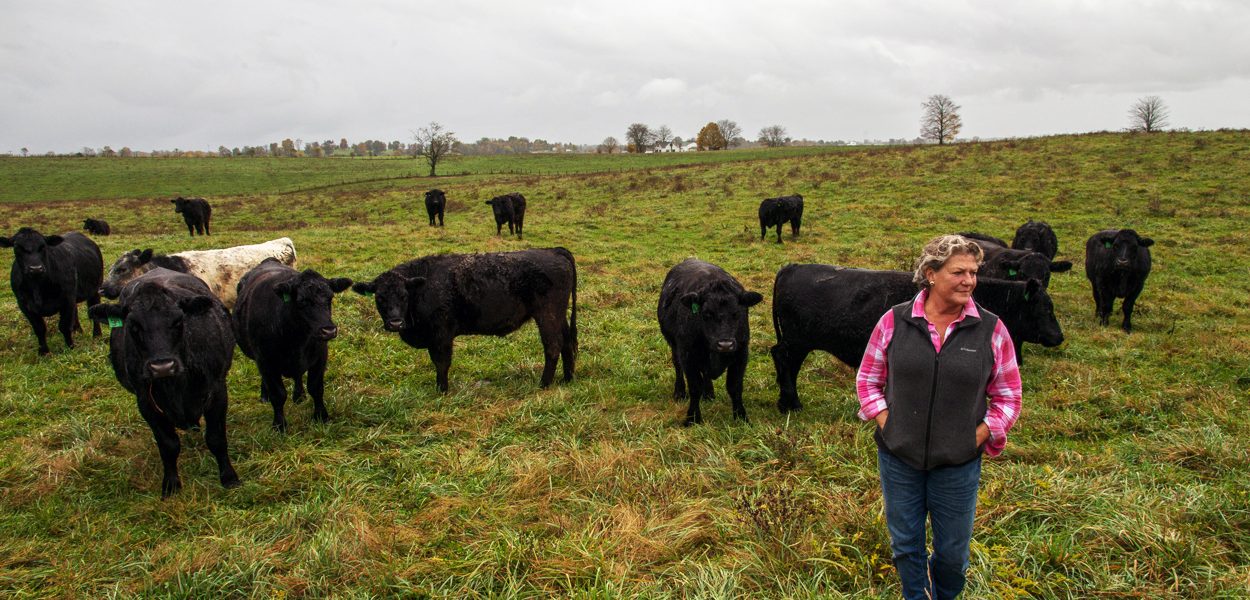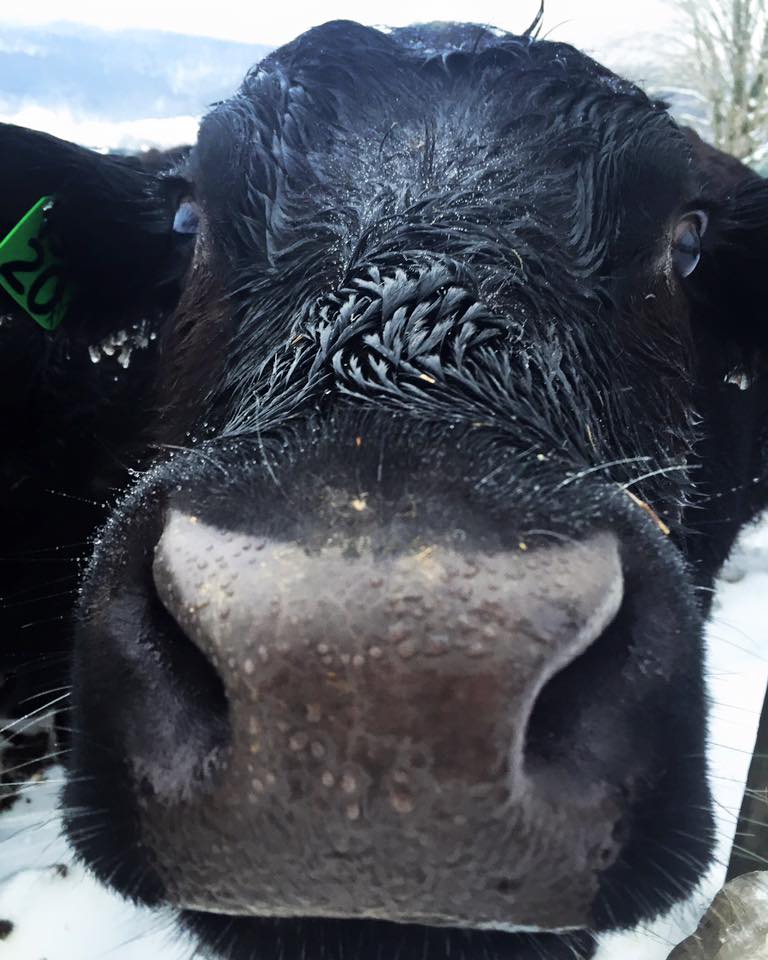Growing up, Jennifer “Tootie” Jones, her siblings, and her thirteen cousins spent every summer on their family’s farm in Greenbrier County, West Virginia. Under the watchful eye of their grandmother, and the insights of a great farm manager, the gaggle of children learned what it took to care for the cattle and horses, and about the history that tied each of them to the 2500 acres known then as Morlunda Farms, now Swift Level. The farm was a central part of their upbringing, and it united them as they grew older. Now as the sole operator of the farm, Tootie knows its importance is far greater than the sum of its parts.
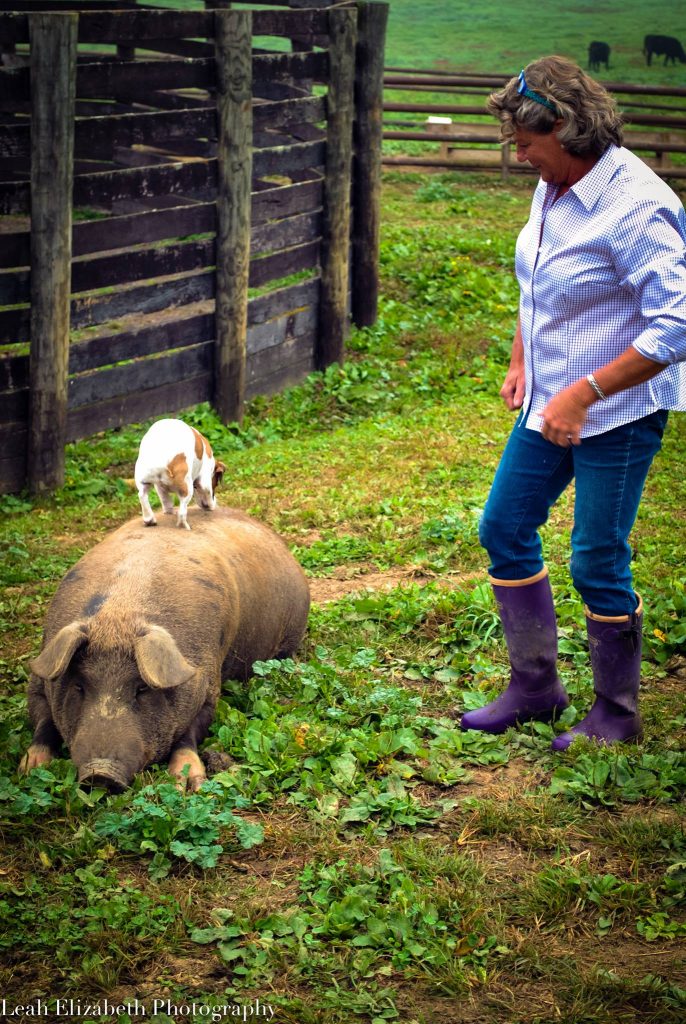
After two decades of living in the rolling countryside of Southern Chester Co. near Philadelphia, Tootie and her husband moved back to Swift Level to raise their two children. Coming back to West Virginia was a wake-up call for her. The region had become drastically different since she’d been away. “Super stores have hollowed out every lovely small town in the United States. It’s the same story everywhere,” she says. “Every town had a butcher and a grocery store and markets and there was a big food exchange. I grew up with that and watched that go away.” She especially laments that no one seemed to have their own garden anymore.
Having always described herself as passionate about food sheds (a geographic area that supplies a population center with food),[1] Tootie decided that she was going to make a difference in the food shed of her home county. She dove in, starting her own pastured, all grass beef cattle farm on the remaining 150 acres of land that her grandfather purchased in 1930.
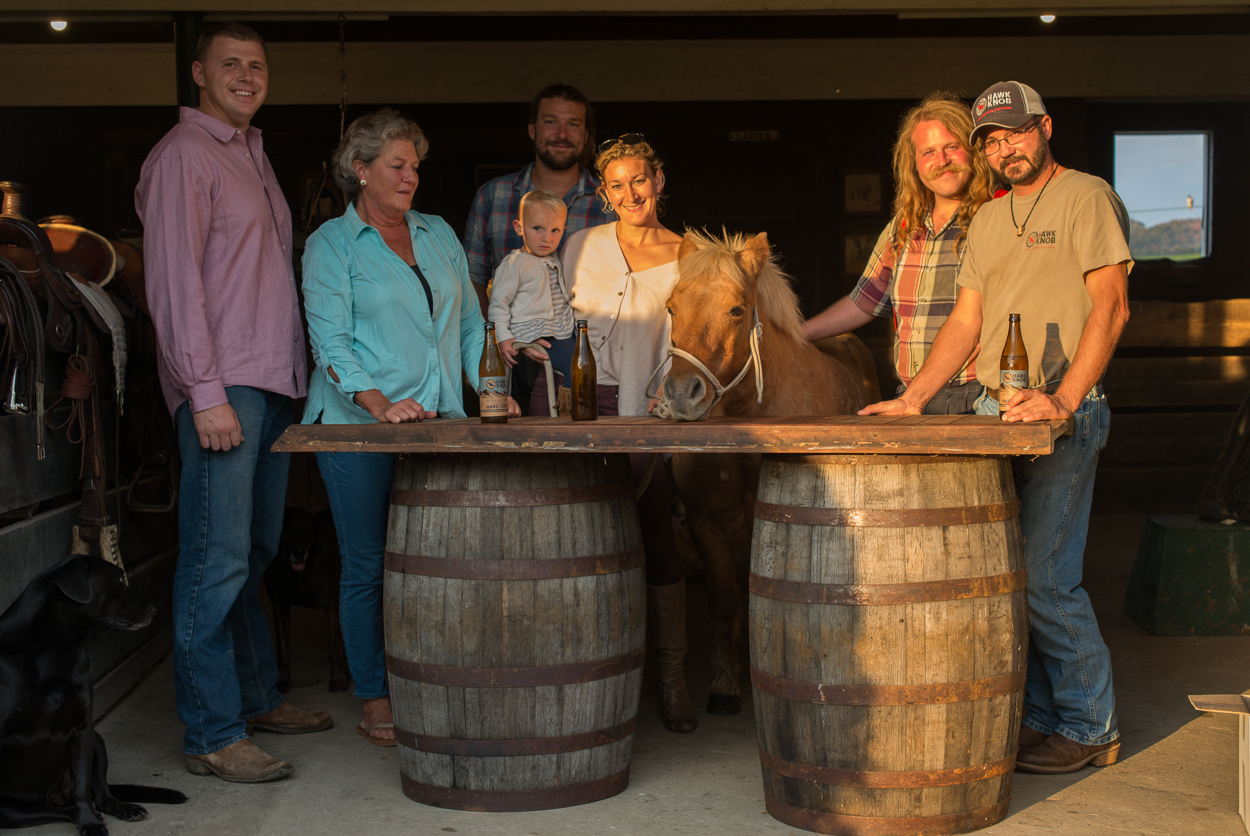
As a child Tootie had not been aware of all the factors that made her grandparents’ farm profitable, and she learned through experience that it was not as easy as her grandparents had made it seem. When her grandfather emigrated from Sweden at the age 17 in 1892, owning and operating a farm came with challenges that were different from the ones she had to deal with. She decided, “Either you walk away from it, or you get creative. You roll your sleeves up and you work.” Getting creative is exactly what she did.
“I was brought up in the generation of women who weren’t trained in business,” she says. “We were just going to marry someone and it was all going to just happen. So, this has been a really interesting adventure for me.”
When Swift Level was owned by her grandfather, his soil remained healthy through a lack of chemical additives, as was the norm in American agriculture before World War II. Now, Tootie honors that original legacy with her sustainable processes, shunning chemicals, pesticides and herbicides. She constantly monitors the soil and grasses, using her cattle strategically to nurture the health of both. At any given time, she has anywhere from eighty to 120 steers moving from pasture to pasture as dictated by nature, moisture, forage growth, and season. Those steers graze only on grass, forages and hay with a healthy kelp and mineral supplementation. Tootie strictly follows the guidelines set forth by the American Grassfed Association. She treats the soil and grass on her property as one of her greatest assets; without it, she would not be able to produce such high-quality meat. She also recognizes the role she plays in carbon sequestration, to mitigate the impacts of climate change.
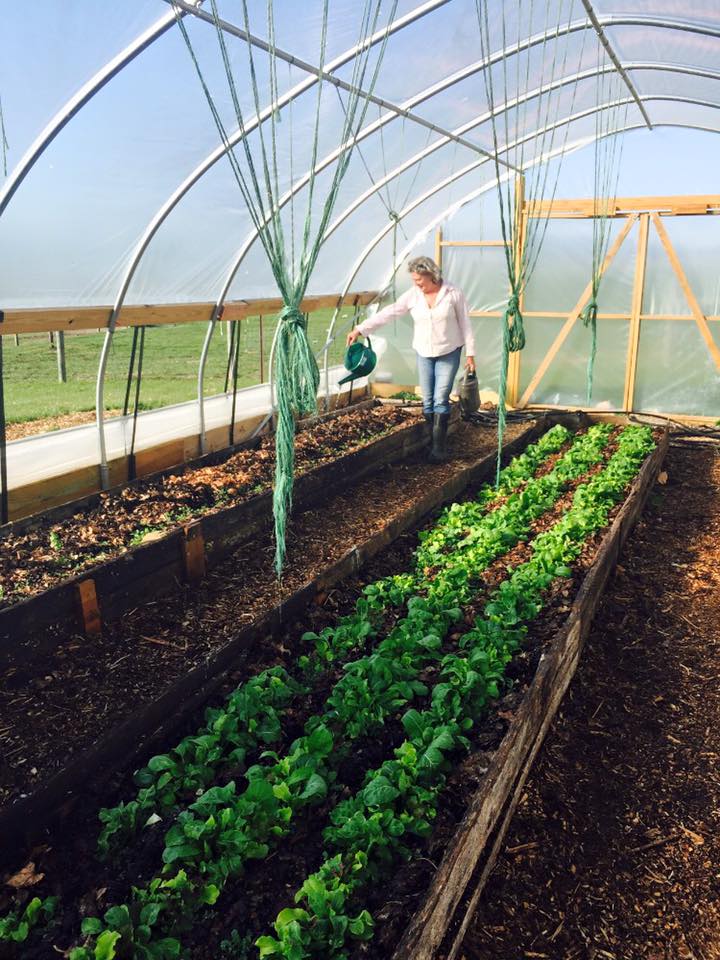
As a stalwart advocate for pasture raised beef, Tootie has become the president of the Greenbrier Valley Pasture Network, and is the chair of the West Virginia Food and Farming Coalition (a Farm Aid grantee!) Meat Working Group. Tootie also welcomes visitors and encourages pasture walks and tours to help eaters better understand the importance and impact of these farming methods. Her vision of a thriving local food system in her corner of West Virginia pushed her to think about new ways to sell her meat.
As her beef operation began to grow, she decided it was time to expand her business, helping other farmers in the process. She opened a retail store, Swift Level Fine Meats, carrying meat and other animal products from 14 nearby farms. Tootie’s store is a boon for other local producers who she considers mentees. She knows firsthand what the needs of local producers are: “Producers are so put upon that no matter how you shake it, you’re wholesaling before you know it and you’re losing money.” She can offer walk in coolers, walk in freezers, and a loading dock, all without taking a commission on other farmers’ sales. “The store has been a real work in progress, but it’s going really well; we’re looking at how to expand it!” Her goal is to have a facility that gives local producers more options for outlets and helps the community in the process.
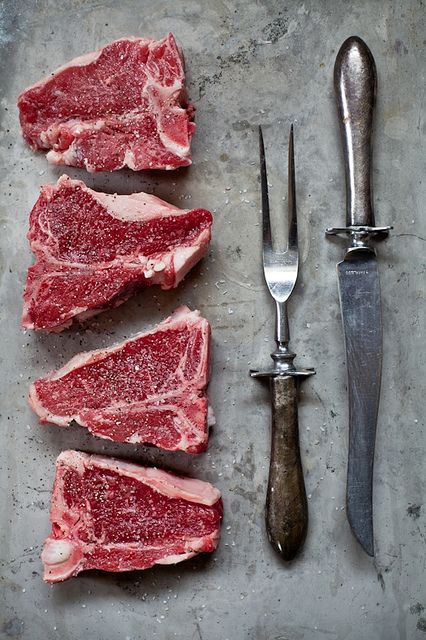
“It’s something I’ve wanted to do for years,” she says, but it didn’t happen overnight. “It’s all been a result of a lot of business planning.” Though both sides of her family were involved in farming, and one side in the coal business, Tootie hadn’t learned about farm finances until she started operating Swift Level Farm. “I was brought up in the generation of women who weren’t trained in business,” she says. “We were just going to marry someone and it was all going to just happen. So, this has been a really interesting adventure for me.”
Thankfully, she didn’t have to reinvent the wheel to get her store up and running. Tootie found a few organizations that were also trying to reinvigorate the economic growth of rural Appalachia. Natural Capital Investment, The Conservation Fund, VC2 and Kitchen Table Consultants are just a few local organizations that helped her along the way: “VC2 and Natural Capital Investment supplied free technical support for business plans like mine and consultants to help insure that you’re building a successful business.”
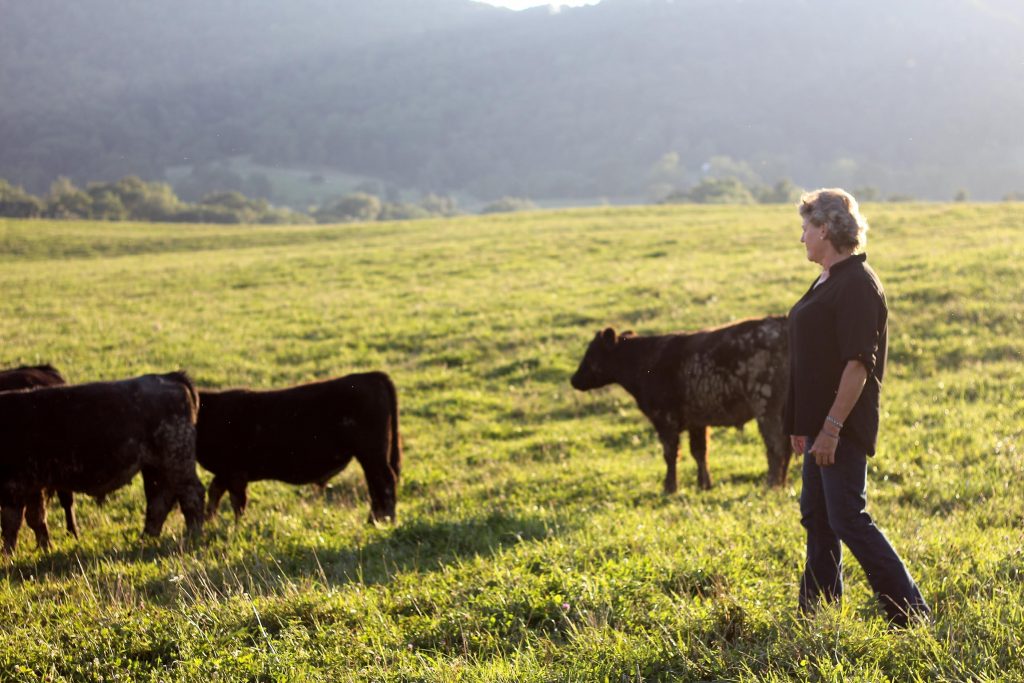
Because both her children grew up on the farm, they have each carved out their niches in Swift Level’s operations. Tootie remains the predominant presence at the store, but her son Everett has been integral this first year. An international traveler at heart, Everett also accompanies her to butchery workshops and gives her new ideas inspired by his travels. Her daughter Rece lives on an adjacent farm with her husband Will and three young children. Rece is instrumental in accounting, strategic planning and Tootie’s third business: running events from their 200-year-old farmhouse property. “People come here and they’re always blown away,” Tootie says of the parties that go late into the night.
Hosting events is another way that Tootie contributes to the local economy. “It brings people,” she says. “We’re a destination spot.” And it’s true: urbanites come from all over to attend events like weddings and retreats at Swift Level. The setup is mutually beneficial. The visitors bring business to the local towns, and in return, they get to experience rural life for a few days. She loves giving them an opportunity to be around cattle and horses and to stargaze at night from her fields. They put on bonfires in an open field, another novelty for folks coming from congested cities. Undoubtedly, the best part for Tootie has been interacting with children: “I get to turn them on to a place where they can run and roll and chase lightning bugs and get dirty.” She boasts, “this is a really beautiful area and our town is a special spot.”
Out-of-towners are not the only ones who have noticed. Tootie has extended family in the valley, and she’s says that more of the young ones are choosing to come back to the farms they grew up on. Just like the back-to-the-land movement that repopulated the valley in the 1970’s (Tootie came back in 1973), there’s been a small migration back to Greenbrier County. She says, “It’s really fun to see these twenty-somethings and thirty-somethings come home.” The renewed interest in sustainable agriculture and locally produced food is hopeful, they have bolstered our great farms, shops, restaurants and businesses. Tootie knows well that West Virginia has exciting prospects ahead. “It’s not a bad place to be,” she says. The feeling is mutual, and Tootie’s got the titles to prove it: in 2015, she was recognized as an Agriculture Woman of the Year by the West Virginia Department of Agriculture; Swift Level Farm was named the 2014 Greenbrier District Conservation Farm, the runner-up for the 2014 WV State Conservation Farm of the Year, and the winner of the Zenith Award for community innovation and involvement.
